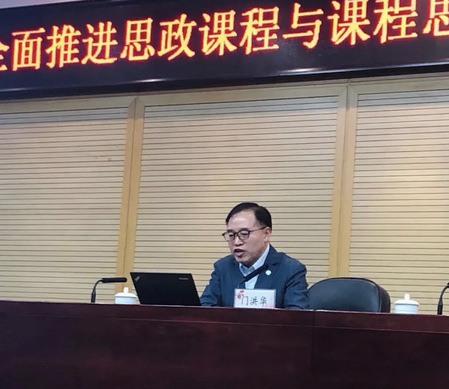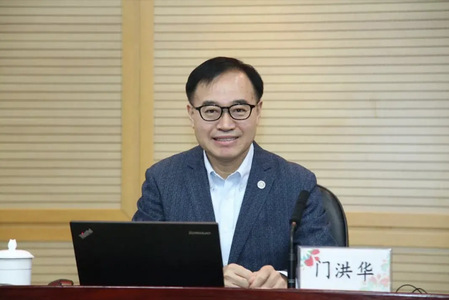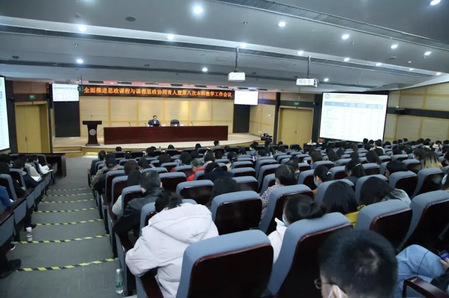About Us




On November 3, Tongji Distinguished Professor Men Honghua, President of the Institute for China & World Studies and Dean of the School of Political Science & International Relations, Tongji University, was invited to give a lecture on “China-US Relations in the New Era” for teachers and students of China Women’s University & ACWF Executive Leadership Academy. Prof. Men provided an in-depth interpretation of the historical evolution, current situation and future trends of China-US relations. The lecture was chaired by Zhao Hao, Deputy Secretary of the Party Committee of China Women’s University.
Dean Men started with the evolution of the China-US trade war. He pointed out that trade frictions began to appear and gradually intensified after China’s reform and opening up, especially after China’s accession to the WTO. After the global financial crisis of 2008, there were high frequencies of frictions. China is the most investigated WTO member on anti-dumping and countervailing duties, and the US is the leading country initiating investigations and sanctions against China. In history, the US stirred up trade frictions against the Soviet Union, the EU and Japan. After Donald Trump was elected president, he unilaterally emphasized “America First”, pursued unilateralism and economic hegemonism, and withdrew from international treaties and organizations. The US is picking up trade frictions all over the world, harming the interests of China and other countries and shaking the foundation of the global multilateral trading system. The behaviors of the US are denounced and countered by many countries.

China is becoming as strong as the US, marking the arrival of an era of dual structure. The changes in China-US relations are mainly due to the effects of China’s rise and the anxiety of the US about its decline. For the US, no strategic challenge is more important than responding to China’s rise. History tells us that when an emerging power is strong enough to challenge an established power, it is often the most turbulent and unstable period in the relationship between the two countries. As stressed by Dean Men, there are structural, strategic and interest-based contradictions and conflicts between China and the US, and the China-US strategic competition has been in full swing. Currently, there is close contact between China and the US, but bilateral stability has significantly decreased; there are many collisions in the political and security fields, with mutual trust absent; there are extensive exchanges and endless disputes in the economic, trade and financial fields; the US is setting up defenses against China in people-to-people exchanges, with a huge impact on each other; and China is taking more international responsibilities, at odds with the US on major issues.
In response to the changes in China-US relations, we should clearly understand the national strength of China and the US, advance strategic trust building, insist on seeking common ground while reserving differences, resolutely safeguard core interests, and actively expand common interests. As to China’s future direction after the outbreak of Covid-19 pandemic, we should comprehend China’s system, its economic, social, cultural and political dimensions, and its strategic positioning, understand and address the radical changes in the external environment, actively maintain national security, and hold high the banner of peace, development and win-win cooperation, to realize the great rejuvenation of the Chinese nation and become a world power recognized by the international community, he noted.
Amid a nationwide upsurge of in-depth study, publicity and implementation of the spirit of the Fifth Plenary Session of the 19th CPC Central Committee, Dean Men’s sophisticated and comprehensive interpretation of China-US relations has helped the teachers and students of China Women’s University gain a deeper understanding of the new contradictions and challenges brought about by the intricate international environment. The teachers and students present said that they would accurately grasp the current domestic and international situations and the policies for foreign affairs, deeply understand the strategic significance of building a new development pattern, effectively enhance the risk awareness, and strengthen accountability, in order to help achieve the goals for the 14th Five-Year Plan and build China into a modern socialist country.
